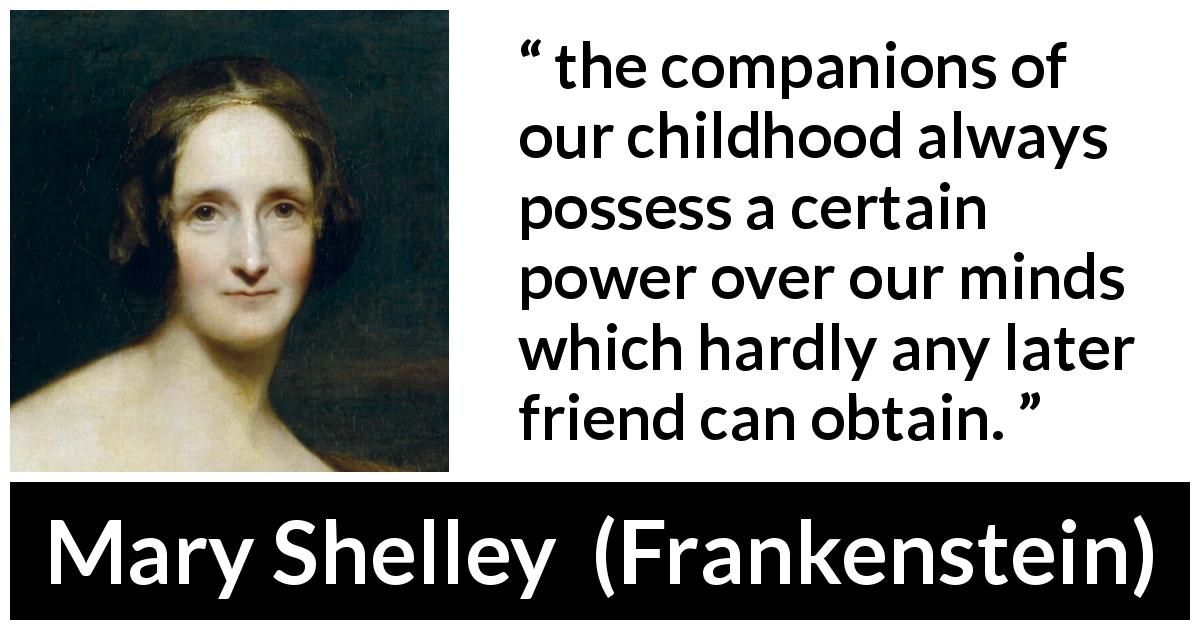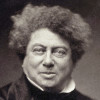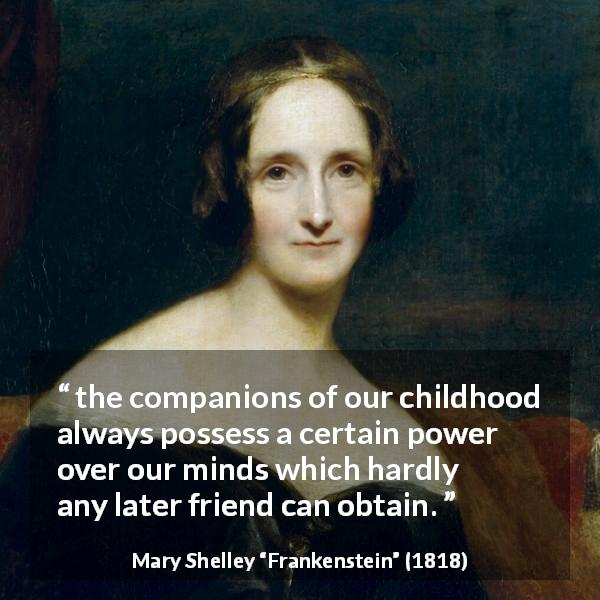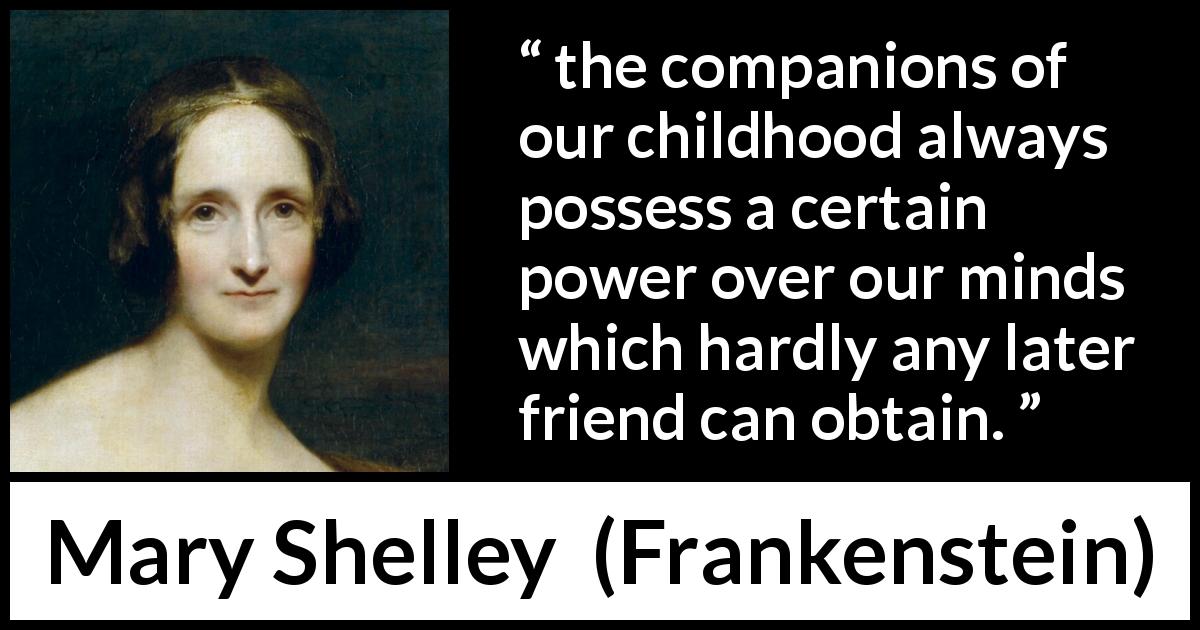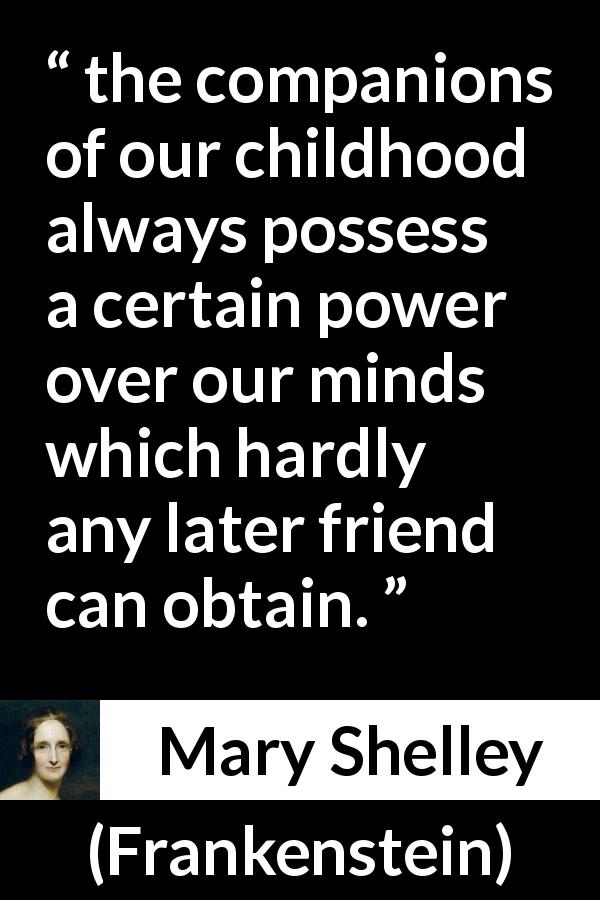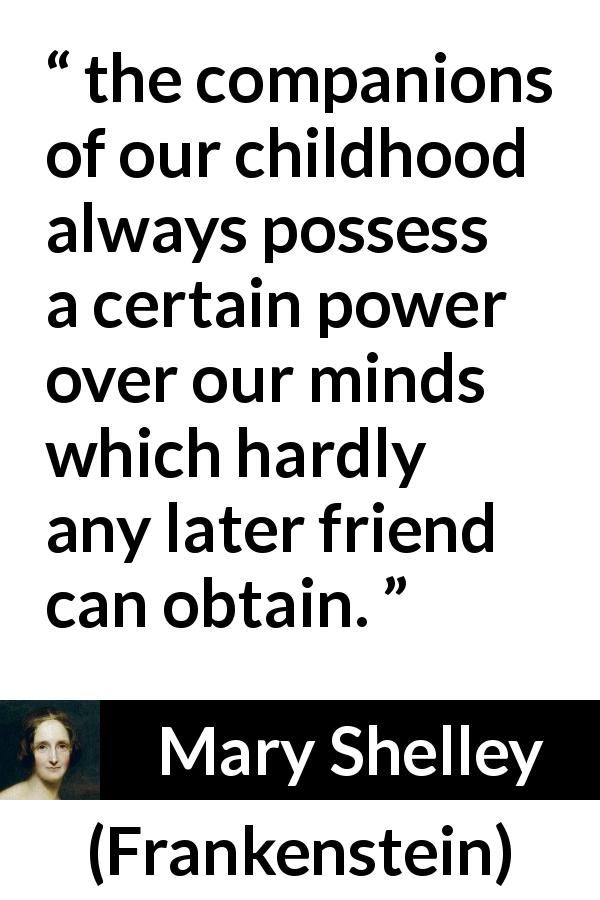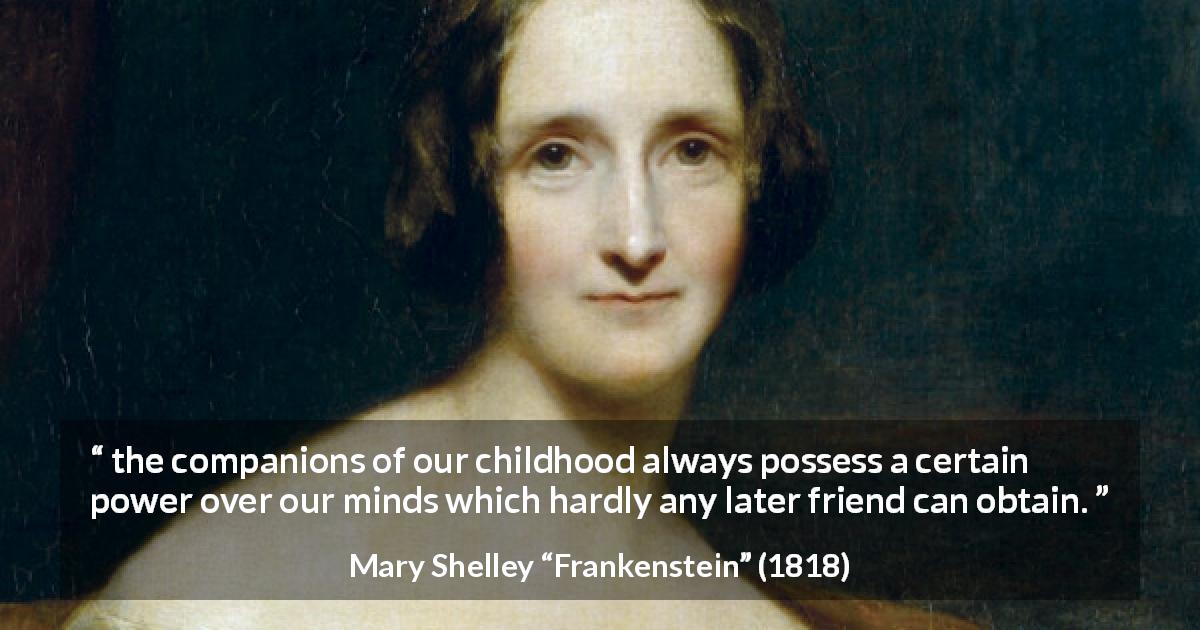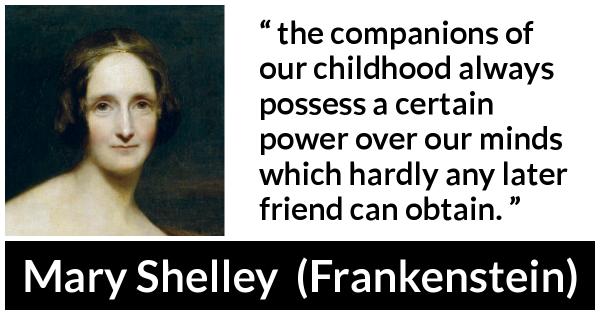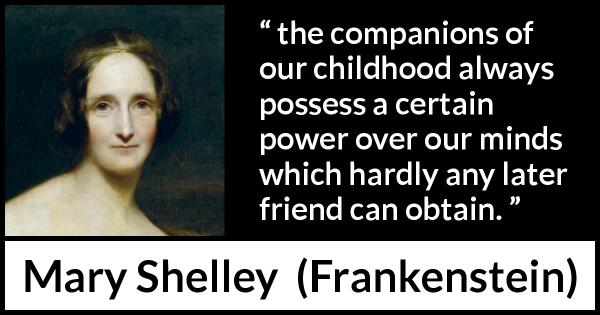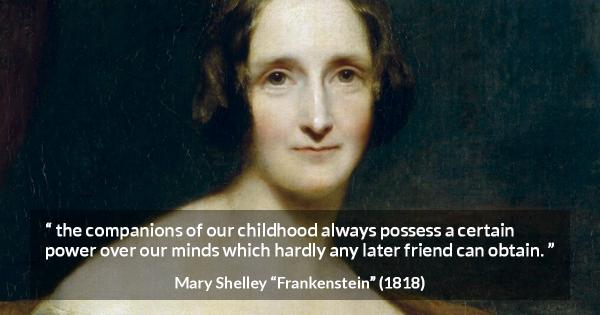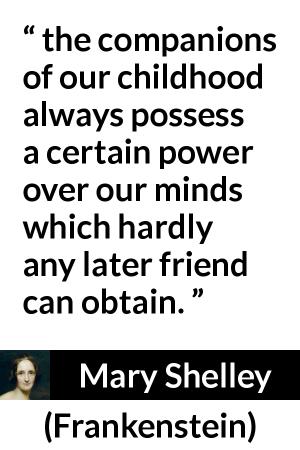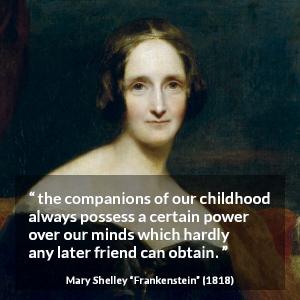“ the companions of our childhood always possess a certain power over our minds which hardly any later friend can obtain. ”
Mary Shelley, Frankenstein (1818). copy citation
| Author | Mary Shelley |
|---|---|
| Source | Frankenstein |
| Topic | friendship childhood |
| Date | 1818 |
| Language | English |
| Reference | |
| Note | |
| Weblink | http://www.gutenberg.org/files/84/84-h/84-h.htm |
Context
“«I thank you, Walton,» he said, «for your kind intentions towards so miserable a wretch; but when you speak of new ties and fresh affections, think you that any can replace those who are gone? Can any man be to me as Clerval was, or any woman another Elizabeth? Even where the affections are not strongly moved by any superior excellence, the companions of our childhood always possess a certain power over our minds which hardly any later friend can obtain. They know our infantine dispositions, which, however they may be afterwards modified, are never eradicated; and they can judge of our actions with more certain conclusions as to the integrity of our motives.”
source
